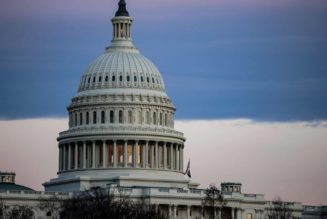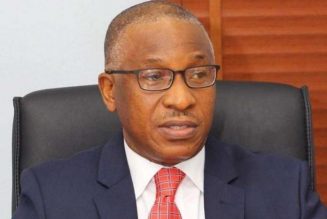Economy
State to name defaulters as supplier debts hit Sh631bn
Friday November 17 2023

The National Treasury building in Nairobi. FILE PHOTO | NMG
The Ruto administration has pledged to start naming State ministries, departments, and agencies (MDAs) as well as parastatals falling behind or defaulting on payments for services rendered or goods supplied after the arrears surged at a record pace in the first year in office.
The announcement came after years of complaints from the public over the failure of the Treasury to disclose defaulters at the national level in quarterly budgetary reports despite the entities accounting for the bulk of pending bills.
While the pending bills for each county are usually published every three months, information on MDAs and state-owned enterprises (SOEs) is usually presented as a cumulative figure without a breakdown.
Read: Parastatals’ non-guaranteed loans hit Sh111.8bn
Members of the public contributing to the 2023 draft Budget Review and Outlook Paper (BROP) had further demanded that the reports include “corresponding measures put in place to address the accumulation of pending bills,” held by ministries and parastatals.
“This recommendation has been noted and the Government will consider incorporating information on pending bills by MDAs and SOEs in subsequent budget documents,” Treasury officials wrote in the final BROP report, published Tuesday.
This came at a time when fresh numbers showed that pending bills held by entities under the national government surged Sh191.4 billion in 12 months through September, the fastest growth since the Treasury started making such information public five years ago.
The arrears for the national government climbed to Sh630.6 billion at the end of September 2023 from Sh439.2 billion which Dr Ruto inherited when he took power a year earlier.
The Treasury data shows accrued bills for SOEs bumped 42.73 percent to Sh509.4 billion in the review period, while MDAs saw the debts jump 47.27 percent to Sh121.2 billion. A majority of MDAs do not usually disclose all the arrears, most of which are historical, the Treasury has said in the past.
The pending bills climbed despite the President pledging to prioritise payment of the debts that have forced many small and medium-sized businesses to close or face auctioneers for failing to service loans they took to supply goods and services to the government.
“I am aware that many individuals, families, and their companies have been driven to ruin and forced to shut down over government unpaid bills,” Dr Ruto said during his inauguration on September 13, 2022.
“We shall give priority to the expeditious resolution of our pending bills so that the government can meet its obligations and facilitate better economic performance.”
The bulk of the debts are owed to contractors of public projects and suppliers of goods and services, with the remainder being unremitted statutory and other deductions.
These include Pay As You Earn taxes to the Kenya Revenue Authority, pension contributions to the National Social Security Fund and Local Authorities Pension Trust as well as medical cover arrears to the National Health Insurance Fund and other insurers, among other obligations.
A Cabinet meeting chaired by Dr Ruto in June resolved to form a special committee to audit the pending bills between 2005 and 2022 on Tuesday giving the committee up to one year to present its findings.
Read: Kenya’s 4-point plan to reform struggling parastatals
A large number of business people who have contracts with the government have ended up being blacklisted by credit reference bureaus after falling behind on loan repayments or defaulting, hurting chances of borrowing in the future.
“Crucially, the committee will propose a mechanism to stop future pending bills,” a Cabinet dispatch said at the time.









